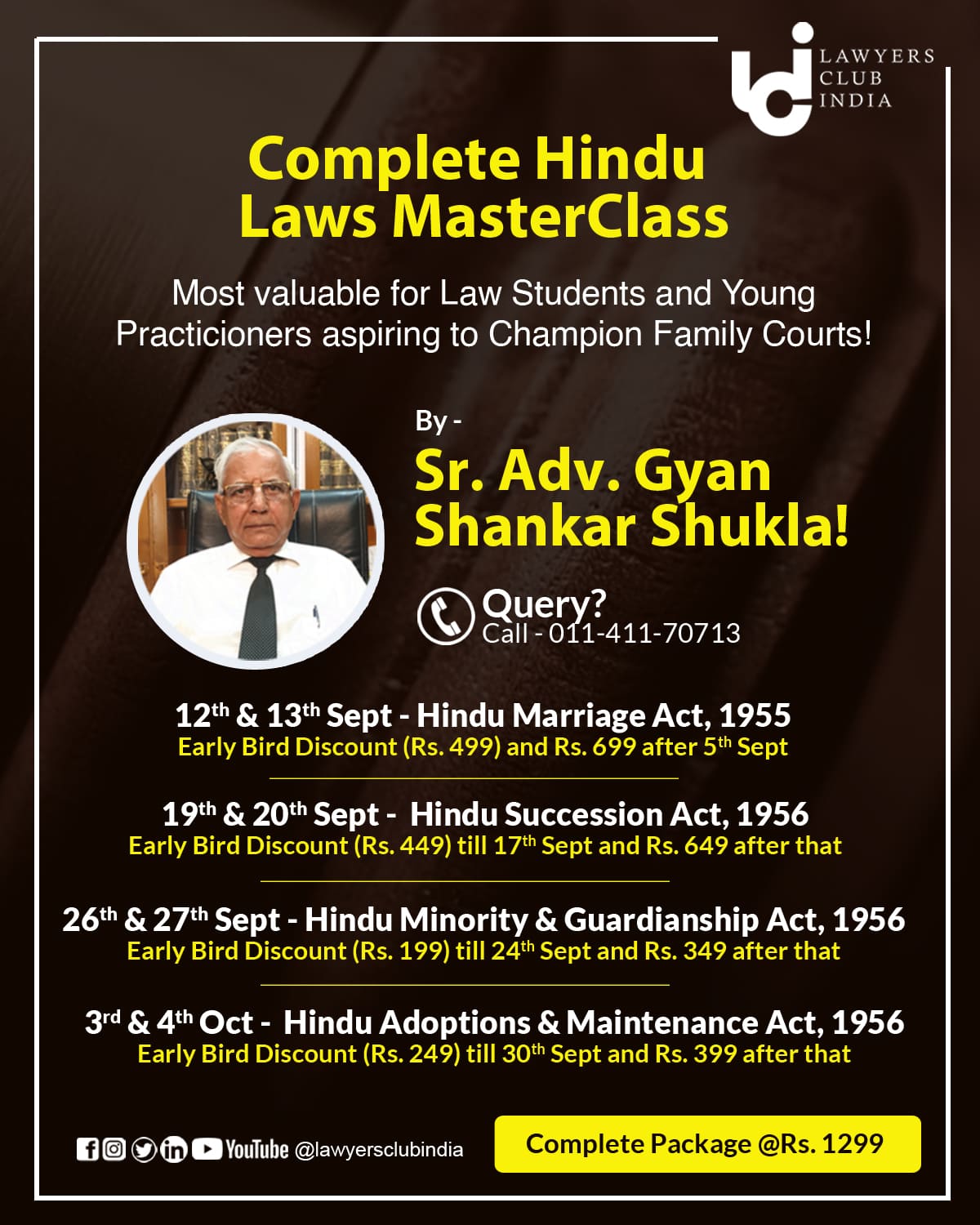Bench:
Jagdish Singh Khehar, CJI.
Issue:
Whether something which is Quranically wrong can be legally right?
Facts:
• This is a major and iconic judgement which deals with triple Talaq and has been cited hundreds of times
• The question before the court is whether the triple talaq has legal sanctity.
• The respondent husband divorced his appellant wife immediately by saying ‘ I divorce you' 3 times consecutively in front of two witnesses.
Appellant's contentions:
• Instant divorce is violative under Art 14, 15 & 21 of Indian constitution.
• Practice of Talaq cannot be protected under rights which are granted to religious denominations.
• It is not part of the Sharia law and is void ab initio.
• This practice is denounced internationally, even in Muslim countries and its not sacrosanct to the faith.
Respondent's contentions:
• The husband contended that the wife used to leave the matrimonial home from time to time.
• Again, the wife left his house on 9th April 2015 with his 2 kids and was accompanied by her father.
• Still, he used to visit her and enquire about her wellbeing.
• Husband stated that when he visited his wife in June 2015 and asked her to return back home with him, she refused to do so.
• Then, the respondent asked the father of his wife to send her home but her father told the respondent that his daughter was not ready to live with the husband.
• Legislation cannot be put down as arbitrary.
Final judgement:
• Renunciation in matters where one's own interest is affected is fine but where power is given to protect the interests of others against measures which are not allowed in our Constitution would be fraught with inadequate consequences.
• Reasonable restrictions under Art 19 (2) to (6) of the Constitution is imposed by legislation and Om Kumar Vs UOI lays down the principle of proportionality, and thus we should consider the proportionality of these restrictions.
• In Chintamanrao Vs State of M.P, it was held that reasonable restrictions should not be arbitrary or excessive in nature.
• After sometime, a law originally intended in good faith can become arbitrary as held in Malpe Vishwanath Acharya v. State of Maharashtra.
• To check whether legislation is arbitrary under Art 14, we have to check for discrimination and excessive delegation of powers.
• Legislation can in fact be questioned under Art 14 if it is unreasonable.
• Triple Talaq is not in the Sunnah (obligatory).
• In Hanafi hadees (way of life), it states that though it is lawful, it incurs wrath of God.
• Talaq must be because of reasonable cause and preceded by reconciliation attempts by 2 arbiters, one from each side's family.
• It is violative of Art 14 of Constitution and thus, Sec 2 of Muslim Marriage Act 1939 is declared void.
• The practice of triple Talaq is set aside.










